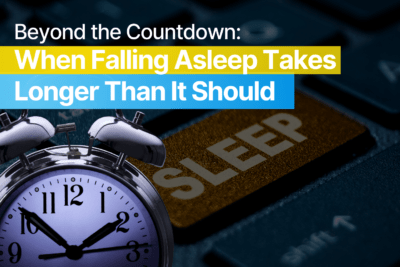
Find out what happens to your body and mind when you dont get enough sleep. Explore the short-term and long-term consequences.
What Happens if I Dont Get Enough Sleep?
Sleep is an essential part of our daily lives, playing a critical role in our overall health and well-being. Despite the constant reminders from family, friends, and medical professionals about the importance of sleep, many people still don’t get enough sleep. Understanding the consequences of sleep deprivation and the benefits of adequate sleep is vital to making informed decisions about our health. This blog explores the short-term and long-term effects of not getting enough sleep and offers practical tips to improve sleep quality.
The Effects of Sleep Deprivation
How Lack of Sleep Affects Your Health: The Consequences of Not Getting Enough Sleep
- Cognitive Impairment:
- Memory and Learning: One of the most significant effects of sleep deprivation is memory and learning. Sleep is crucial for memory consolidation, a process where the brain processes and stores information acquired during the day. Without adequate sleep, the brain struggles to retain new information and recall memories, making learning new skills and concepts more challenging.
- Concentration and Productivity: Lack of sleep impairs concentration, problem-solving abilities, and decision-making skills. Sleep-deprived individuals often find themselves prone to mistakes, slower reaction times, and decreased efficiency at work or school. Studies have shown that sleep deprivation can reduce cognitive performance to levels comparable to alcohol intoxication.
- Emotional Instability:
- Mood Swings: Sleep deprivation can lead to significant mood swings and irritability. Individuals who don’t get enough sleep are more likely to experience feelings of stress, anxiety, and depression. These mood disturbances can affect personal and professional relationships, leading to conflicts and misunderstandings.
- Emotional Regulation: Poor sleep impairs the brain’s ability to manage emotions, making it harder to cope with daily challenges. Sleep-deprived individuals are more likely to overreact to minor stressors and have difficulty handling complex emotional situations.
- Physical Health Consequences:
- Immune System Function: Sleep is essential for maintaining a robust immune system. During sleep, the body produces cytokines, proteins that help fight off infections and inflammation. Lack of sleep reduces the production of these protective proteins, leaving the body more susceptible to illnesses and prolonging recovery times.
- Heart Health: Chronic sleep deprivation is linked to an increased risk of cardiovascular diseases. Studies have shown that individuals who consistently get less than the recommended amount of sleep are more likely to develop hypertension, heart attacks, and strokes. Sleep helps regulate blood pressure and reduce inflammation, both critical for maintaining heart health.
- Metabolic Health: Sleep deprivation disrupts the body’s ability to regulate blood sugar levels and metabolism. This disruption increases the risk of developing type 2 diabetes and obesity. Insufficient sleep affects the hormones that control hunger and appetite, leading to increased cravings for unhealthy foods and overeating.
- Reduced Physical Performance:
- Coordination and Reaction Time: Insufficient sleep affects motor skills, coordination, and reaction times. This impairment increases the risk of accidents and injuries, whether at work, while driving, or during physical activities.
- Endurance and Strength: Physical performance, including endurance, strength, and muscle recovery, is compromised when you don’t get enough rest. Athletes and individuals who engage in regular physical activity may notice a decline in their performance and increased fatigue.
The Benefits of Adequate Sleep:
The Power of Sleep: How Getting Enough Sleep Boosts Your Health
On the flip side, getting enough sleep offers numerous benefits that enhance cognitive function, emotional well-being, and physical health.
- Enhanced Cognitive Function:
- Memory and Learning: Adequate sleep allows the brain to process and consolidate information from the day, strengthening memories and facilitating learning. Well-rested individuals are better equipped to acquire new skills and retain information.
- Problem-Solving Skills: Individuals who get sufficient sleep perform better on tasks requiring logical reasoning, problem-solving, and creativity. Sleep boosts cognitive functions, allowing for clearer thinking and improved decision-making.
- Emotional Well-Being:
- Mood Stability: Adequate sleep promotes emotional stability, reducing the risk of mood disorders such as anxiety and depression. With better sleep, individuals can manage stress more effectively and maintain a positive outlook on life.
- Social Interactions: Better emotional regulation leads to more positive interactions and healthier relationships. Well-rested individuals are more likely to engage in meaningful social activities and maintain strong connections with others.
- Improved Physical Health:
- Stronger Immune System: Quality sleep supports the immune system, enhancing the body’s ability to fight off infections and recover from illnesses. Well-rested individuals are less likely to get sick and can recover more quickly when they do.
- Heart Health: Sufficient sleep helps maintain a healthy heart by regulating blood pressure, reducing inflammation, and lowering the risk of cardiovascular diseases. Consistent sleep patterns contribute to overall cardiovascular health.
- Weight Management: Sleep influences the hormones that control hunger and appetite, helping to maintain a healthy weight and prevent obesity. Adequate sleep reduces cravings for unhealthy foods and supports balanced eating habits.
- Better Physical Performance:
- Energy Levels: A good night’s sleep boosts energy levels, making individuals more active and productive during the day. Higher energy levels contribute to better performance in both professional and personal activities.
- Physical Recovery: Sleep is crucial for muscle repair and recovery, especially after intense physical activity or exercise. Adequate rest allows the body to heal and strengthen, reducing the risk of injuries and improving overall physical fitness.
Simple Tips for Improving Sleep Quality
- Establish a Regular Sleep Schedule: Go to bed and wake up at the same time every day, even on weekends, to regulate your body’s internal clock.
- Create a Relaxing Bedtime Routine: Engage in calming activities before bed, such as reading, meditating, or taking a warm bath, to signal to your body that it’s time to wind down.
- Optimize Your Sleep Environment: Ensure your bedroom is cool, quiet, and dark. Consider using blackout curtains, earplugs, or a white noise machine to create an ideal sleep environment.
- Limit Exposure to Screens Before Bed: The blue light emitted by phones, tablets, and computers can interfere with your body’s production of melatonin, a hormone that regulates sleep.
- Watch Your Diet and Exercise: Avoid large meals, caffeine, and alcohol before bedtime. Regular physical activity can help you fall asleep faster and enjoy deeper sleep but try to avoid vigorous exercise close to bedtime.
Sleep is a fundamental aspect of our health that affects every part of our lives. Not getting enough sleep can lead to a wide range of cognitive, emotional, and physical health issues, from impaired memory and concentration to increased risk of chronic diseases. On the other hand, adequate sleep enhances cognitive function, emotional well-being, and physical health, providing a solid foundation for a healthy and productive life.
By understanding the consequences of sleep deprivation and implementing strategies to improve sleep quality, you can take control of your health and well-being. Remember, making sleep a priority is one of the best investments you can make for your future.
Achieve Deep Sleep: Proven Strategies for Better Sleep Quality: www.BPS-Sleep.com
References
- National Institutes of Health (NIH). (n.d.). Sleep Deprivation and Deficiency. Retrieved from https://www.nhlbi.nih.gov/health-topics/sleep-deprivation-and-deficiency
- Harvard Medical School. (n.d.). Importance of Sleep: Six reasons not to scrimp on sleep. Retrieved from https://www.health.harvard.edu/staying-healthy/importance-of-sleep
- Centers for Disease Control and Prevention (CDC). (n.d.). How Much Sleep Do I Need? Retrieved from https://www.cdc.gov/sleep/about_sleep/how_much_sleep.html
- Mayo Clinic. (n.d.). Sleep tips: 7 steps to better sleep. Retrieved from https://www.mayoclinic.org/healthy-lifestyle/adult-health/in-depth/sleep/art-20048379
- American Psychological Association (APA). (n.d.). The role of sleep in emotional brain function. Retrieved from https://www.apa.org/news/press/releases/stress/2013/sleep








